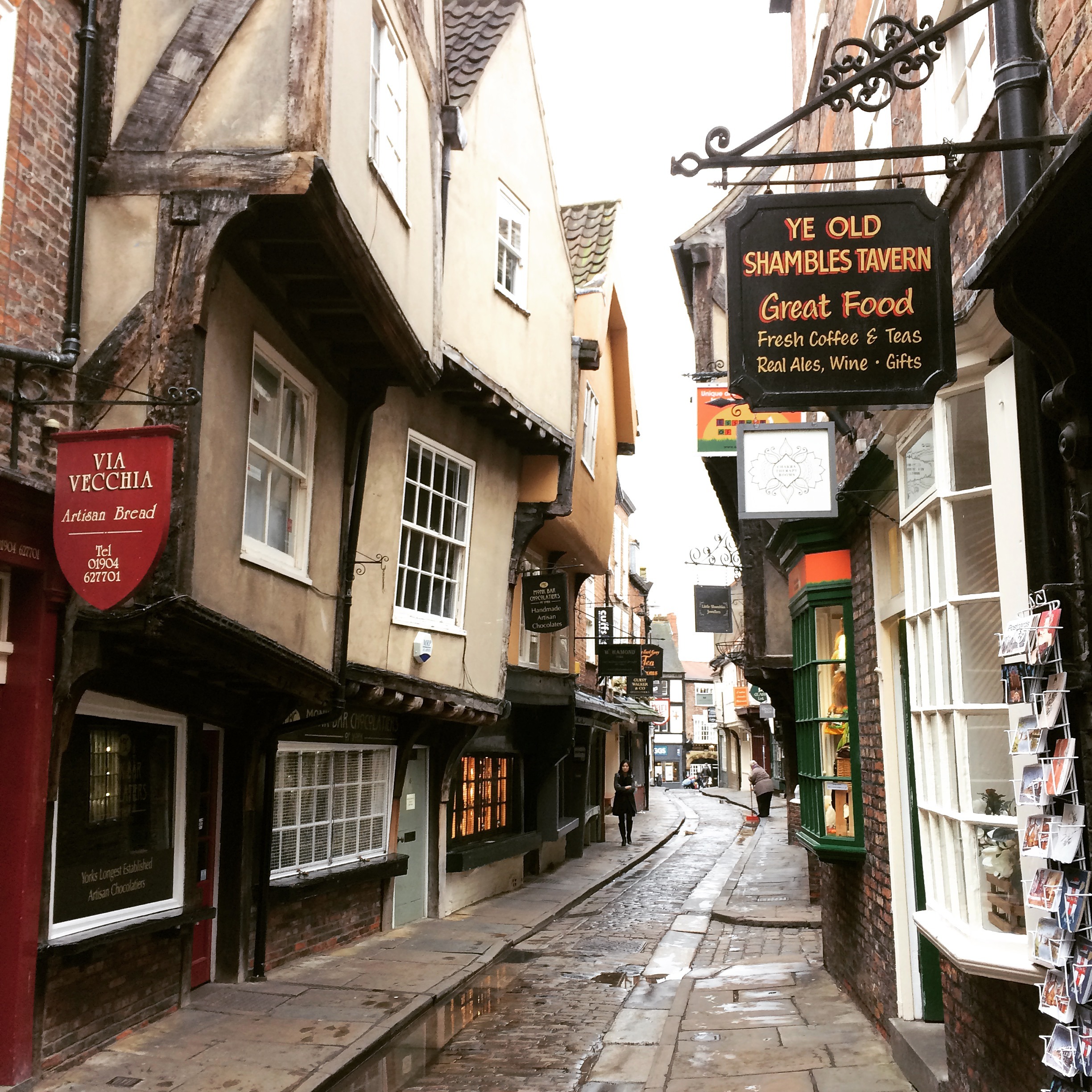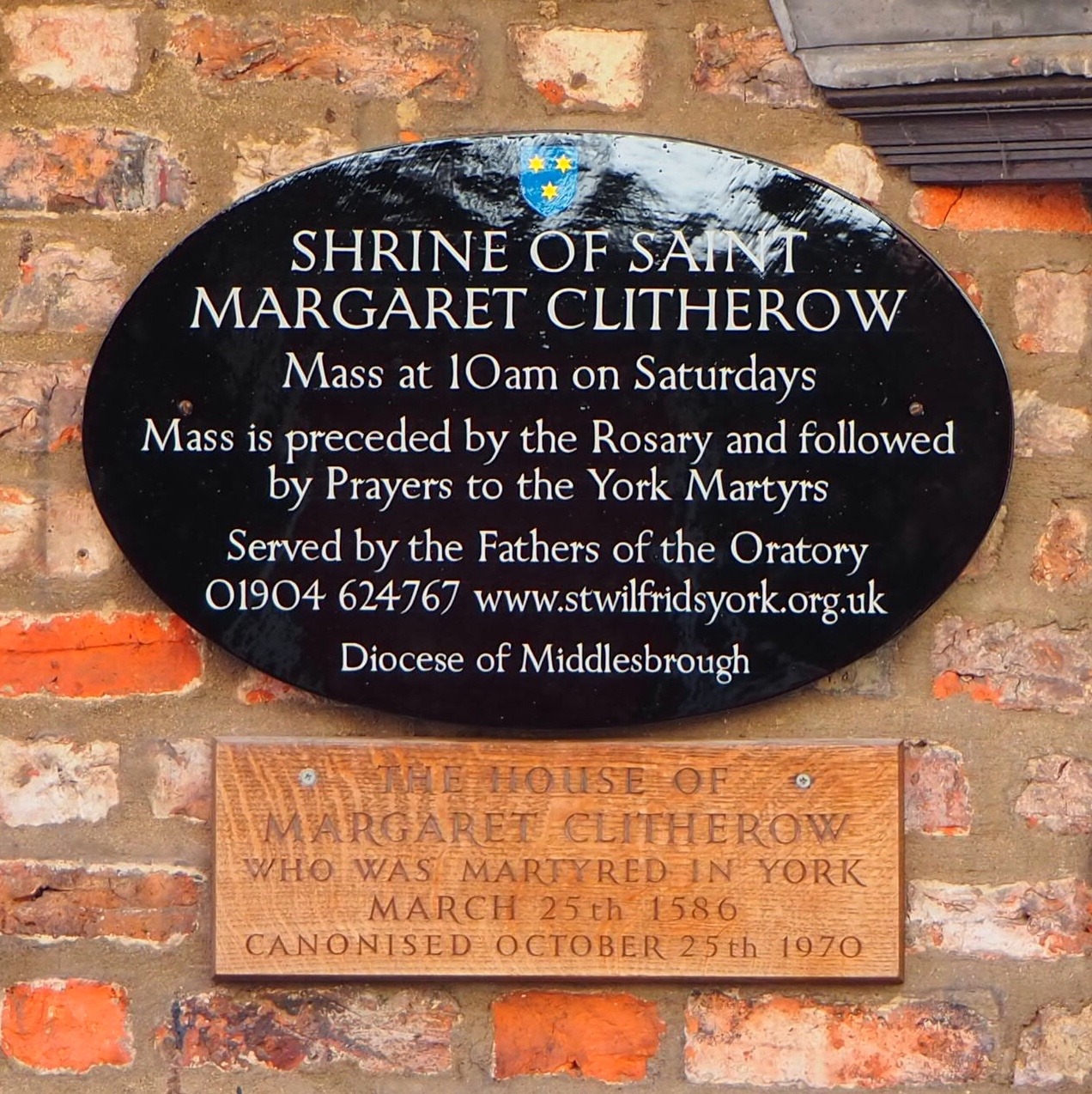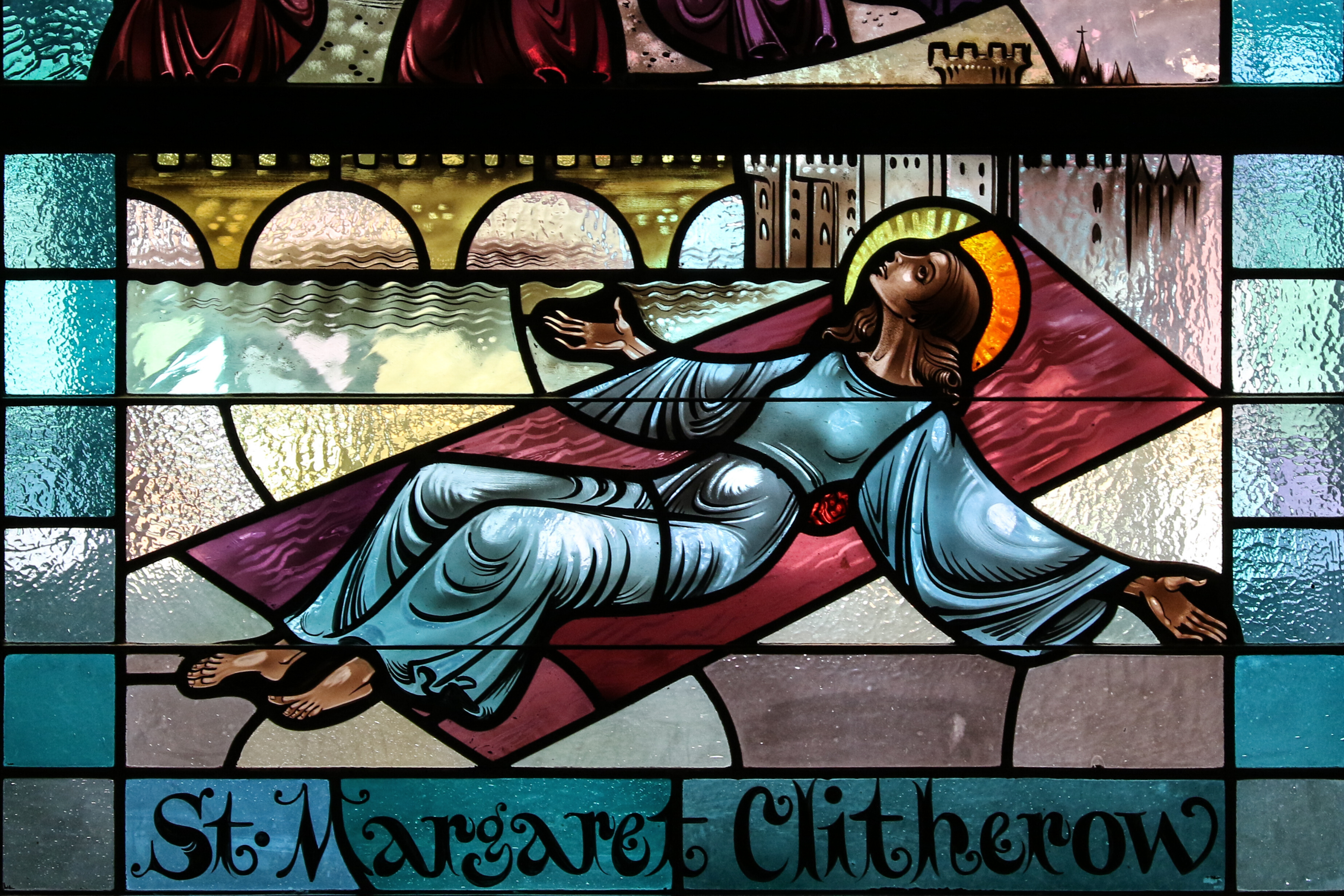The sun’s shining in York, and the streets are full of happy trippers enjoying the history and the street entertainers.
All of a sudden the weather changes – a torrential shower. We all dash for shelter under the awnings of stalls marketing artisanal bread or gourmet cheese. After only a few minutes the street’s awash: my bare feet in their open sandals are sloshing through the water. But then the sun comes out again, and everything dries out in no time.
 I turn down the Shambles, go into St Margaret Clitherow’s house and sit down.
I turn down the Shambles, go into St Margaret Clitherow’s house and sit down.
It’s dark and gloomy inside, and there’s nothing much to see. But I feel very close to her here.
I imagine her in the midst of life – serenely busy.
Managing the household, running the shop.
Socialising with the neighbours and keeping them all sweet, keeping them on her side – though I never got the impression there was anything calculated about that: she comes across to me as very much a people person.
Being always ready with awarm welcome, and every creature comfort, for her husband whenever he arrived home unexpectedly.
Organising her illegal networks of priests and Mass centres and Catholic schools…
I’m struck by the givenness of so much of her life.
 She didn’t choose to marry John Clitherow – though the marriage seems to have worked, as arranged marriages often do. She didn’t choose to live here, in the butchers’ quarter which would have been horribly smelly and noisy. In this poky little house.
She didn’t choose to marry John Clitherow – though the marriage seems to have worked, as arranged marriages often do. She didn’t choose to live here, in the butchers’ quarter which would have been horribly smelly and noisy. In this poky little house.
I know what I see wasn’t the whole house; all the same, it gives you an idea of the scale.
How did she manage to fit everyone in? All the children – her own, the “looked-afters”, and her oh-so-youthful staff? And the others that the authorities weren’t supposed to know about? I’d have been climbing the walls.
But I know she just got on with it, calm and joyful, living in the present moment, doing what was at hand, accepting whatever God sent. Even so, her frequent prison sentences must have come as a relief: in prison she got more space for herself, and could catch up on her spiritual reading.

It was here they came to arrest her, that very last time. When they threatened to beat the children till they pointed out her secret hiding places. And then, when she was brought before the Assizes and asked whether she pleaded guilty or not guilty, she refused to plead. Knowing this would condemn her to a painful and lingering death.
Because otherwise they would drag the children and the neighbours into it as well, and she wasn’t going to let that happen.
To protect everyone living in and around this little house, she refused to plead.
Cover image credit: Lawrence OP




